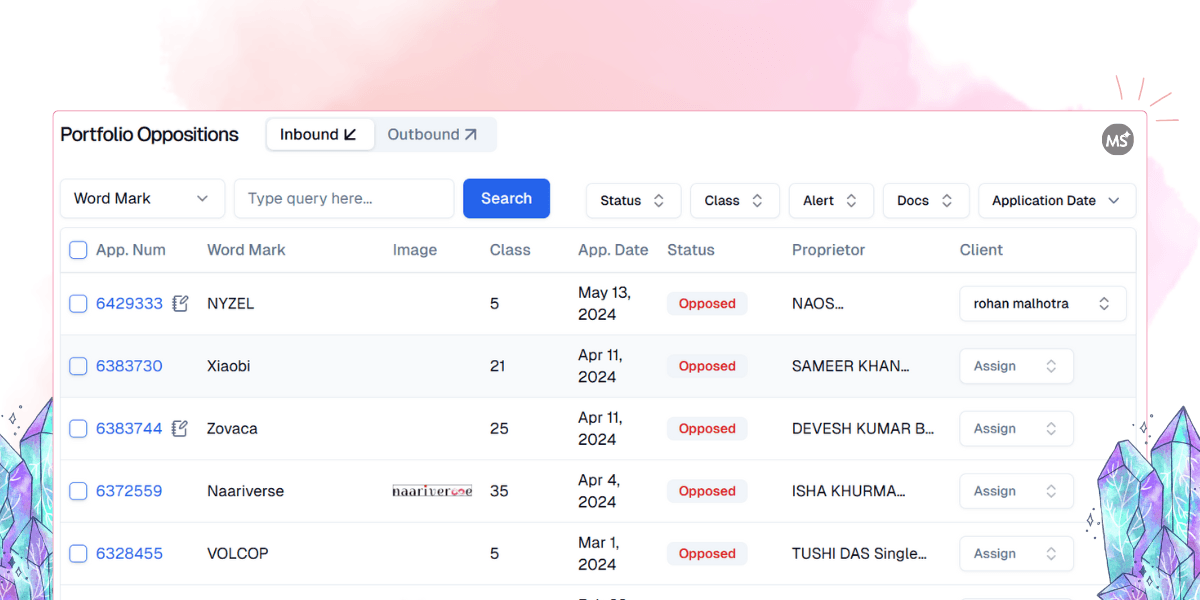In the complex landscape of intellectual property protection, trademark opposition proceedings in India serve as a critical legal checkpoint. Brand owners can challenge potentially conflicting applications after publication but before registration, ensuring that the rights of existing mark holders are preserved. Understanding how to navigate these proceedings—whether as an opposer or an applicant defending against opposition—can significantly influence your brand’s long-term success and IP strategy.
Understanding Trademark Opposition in India
Trademark opposition is governed by the Trade Marks Act, 1999 and Trade Marks Rules, 2017. After the trademark application is examined and accepted, it is published in the Trademark Journal. From the date of publication, any third party has 4 months to file an opposition using Form TM-O under Rule 42.
Typical grounds for opposition include:
-
Likelihood of confusion with existing marks
-
Descriptiveness or genericness
-
Lack of distinctiveness
-
Bad faith or dishonest adoption
-
Prior use or existing common law rights
Pre-Opposition Phase: Monitoring and Assessment
Vigilant trademark owners regularly review the Trade Marks Journal (published weekly by the Indian Trademark Registry) to identify conflicting marks.
Key steps include:
-
Reviewing published marks under relevant classes
-
Assessing visual, phonetic, and conceptual similarity
-
Reviewing goods/services overlap
-
Gathering prior use evidence
Using trademark monitoring software such as MarkSimpl’s platform can help automate these checks and flag risky marks within the 4-month window.
Filing a Trademark Opposition in India
-
Form: TM-O
-
Deadline: Within 4 months from the publication date in the journal
-
Fee: ₹2,700 (physical filing) or ₹2,400 (e-filing) per class
-
Contents: Details of the opposer, opposed mark, grounds for opposition, and relevant evidence (if available)
Failure to file the notice within the time frame renders the application ineligible for challenge.
Opposition Procedure Timeline (India)
-
Counter-Statement (by Applicant):
Must be filed within 2 months from receipt of the opposition notice.
Failure = Application deemed abandoned (Rule 45). -
Evidence in Support of Opposition:
To be submitted by the opponent within 2 months of receiving the counter-statement. -
Evidence in Support of Application:
Applicant gets 2 months after opponent’s evidence to file rebuttal. -
Rejoinder by Opponent:
Optional evidence-in-reply within 1 month of applicant’s filing. -
Hearing:
Conducted by the Registrar of Trademarks, both parties are called upon to present their arguments. -
Decision & Appeal:
The Registrar issues a decision. The aggrieved party may appeal to the Intellectual Property Appellate Board (IPAB) (or High Court in current practice after IPAB’s abolition in 2021).
Common Grounds for Opposition (Indian Context)
-
Section 11(1) – Relative grounds: Confusion, identical/similar earlier mark
-
Section 9(1) – Absolute grounds: Non-distinctive, descriptive, deceptive
-
Prior use under common law
-
Bad faith adoption (misleading intent)
Strategic Approaches for Opposers
-
Pre-Opposition Cease & Desist: Encouraging early withdrawal or coexistence
-
Evidence Planning: Sales data, market reputation, prior use, invoices, media recognition
-
Targeted Grounds: Focusing on strongest, most defensible claims
-
Cross-Border Strategy: Aligning global filings with Indian proceedings
Defending Against Opposition in India
-
Assess the Claims: Check validity and standing of the opponent
-
Prepare Evidence: Prior use, third-party marks, peaceful coexistence
-
Amendments: Consider limiting goods/services to avoid conflict
-
Procedural Defenses: Challenge non-compliance or delays by the opponent
Tech Integration for Opposition Management
Using Trademark Management Tools like MarkSimpl’s platform can help with:
-
Automated trademark journal monitoring
-
Deadline tracking and alerts
-
Document storage and preparation
-
Custom analytics and case-history comparisons
Settlement Considerations
In India, many oppositions are resolved via:
-
Consent Agreements
-
Coexistence Agreements
-
Amendments to the application
-
Withdrawals with conditions
These agreements should be documented and filed with the Registry when necessary.
Costs & Timelines (India)
Timeframe**: 18–36 months typically
Costs**: ₹25,000–₹2,00,000+ depending on complexity, legal counsel, and whether it proceeds to hearing
Trademark opposition in India is a structured process that balances rights of existing trademark owners with the interests of new applicants. Whether you are filing or defending, strategic preparation, strong evidence, and use of modern tools like MarkSimpl’s opposition tracking and trademark manager can dramatically improve your chances of success.

